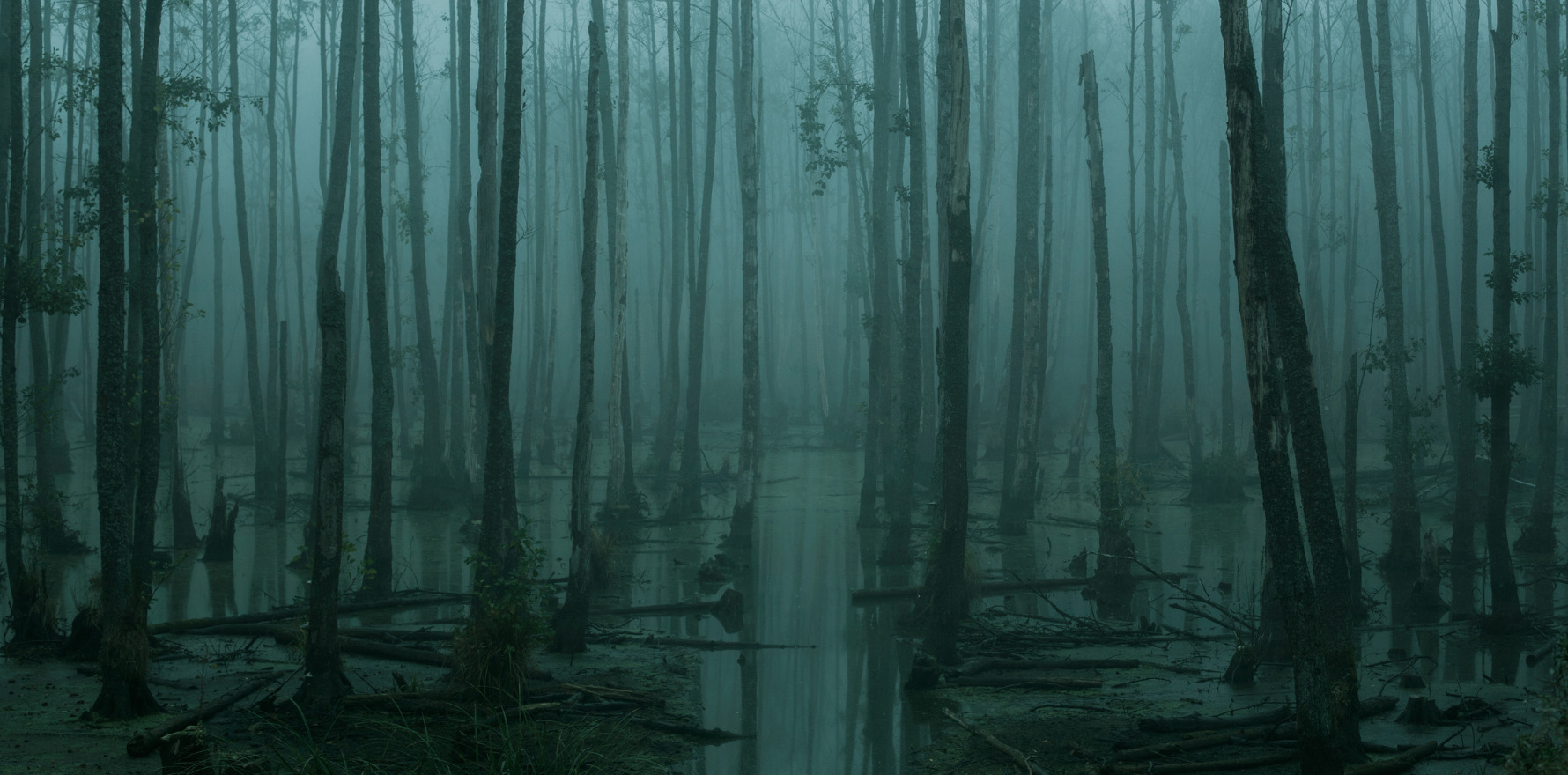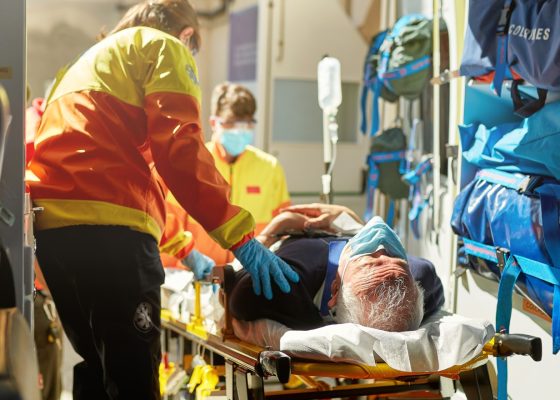Five hospitals in four states are in the media spotlight for problems with patient access and safety.
The inquest into three deaths related to ambulance ramping at Royal Adelaide Hospital and Flinders Medical Centre has begun in Adelaide.
Deputy State Coroner Ian White is holding an inquest into the deaths of 76-year-old Anna Vincenza Panella in April 2019, 89-year-old Bernard Anthony Skeffington in September 2021 and 64-year-old Graham Henry Jessett in March 2022.
Mr Jessett died of a cardiac arrest while being transferred from an ambulance to a Flinders Medical Centre bed after waiting five hours in the ambulance for a bed to become available.
Mr Skeffington waited three hours and 43 minutes after his first request for an ambulance to arrive. Two ambulances were re-tasked before a third ambulance arrived. He received care from paramedics on the ramp at the RAH, where his condition “rapidly deteriorated”. One hour and 43 minutes after arrival he was admitted to the ED. He died four days later.
Mrs Panella arrived at the RAH via ambulance after experiencing dizziness and a fall. Her condition worsened outside the hospital and she was taken into resuscitation at the hospital 50 minutes after arriving. About 10 minutes later she suffered a cardiac arrest and underwent CPR. She did not recover.
The inquest will look at emergency department circumstances and decisions, access block and whether the Australasian Triage Scale – a tool used to determine the maximum waiting time for the medical assessment and treatment of a patient — was working and being properly administered.
Counsel assisting the coroner, Darren Evans told the court that the number of ramping hours per month across SA Heath peaked in November 2023 at 4285.
He said while “some waiting was inevitable” it was “unfortunate that we even have a word” for ambulance ramping, which is also known as “delayed transfer of care”.
“It is particularly tragic that inside the hospital there are medical staff with all of the skills, all of the knowledge and the best intentions in the world that sick people just don’t get in to see,” he said.
“Each turned to the health system at their time of most need, each was made to wait on the doorstep of a hospital, the health concerns of each escalated to a point where they lost their lives.”
The inquest will run for the next fortnight.
Meanwhile, in Queensland …
The family of central Queensland woman Dalrayne Meikle has filed a complaint with Queensland Health over the delays in her cancer treatment at Rockhampton Hospital, administered by the Central Queensland HHS.
Ms Meikle was sent for a referral to a urology specialist for a “likely invasive bladder tumour” in November 2022, according to the ABC.
The 62-year-old was seen for her first assessment by mid-December. She was told she needed treatment within six weeks but waited more than three months for surgery.
After surgery Ms Meikle had two rounds of radiotherapy. She died three weeks later in May 2023.
An independent review provided to the Central Queensland HHS found the one-month time between Ms Meikle’s referral and first assessment was “barely acceptable” given her likely bladder cancer diagnosis.
She was also placed as a category 2 urgency with a recommended surgery time of six weeks, despite category 2 patients typically having a 90-day recommendation for treatment.
The review said her surgery was only performed more than three months later in March because she was so sick that she presented to the Yeppoon Hospital for care.
“This delay is not acceptable,” said the report, which was seen by the ABC.
Queensland Health Minister Shannon Fentiman told the ABC an external review was conducted to determine how services could be improved.
She said since then a range of measures had been introduced, including better guidelines around triaging patients who were referred by their GP, more regular telehealth appointments to communicate results with patients, and frequent reporting about wait lists to hospital executives.
“I’m advised that hospital staff have been in contact with the family to discuss the findings of the external review and how the hospital is updating their processes,” Ms Fentiman was quoted as saying.
Meanwhile, in the Northern Territory …
A coroner’s court has heard that the death of a Tiwi Island mother in Royal Darwin Hospital was preventable.
Pukamani Alimankinni, 47 was transferred to RDH emergency department by hospital by helicopter from Tiwi.
Over the next several days she was given “high doses” of antipsychotics, including ketamine. She spent three days in the ED because there were no beds available in the mental health unit.
Once transferred to the mental health unit her compulsory 15-minute observations were done via CCTV and when she was found non-responsive medical teams “delayed CPR”.
She died in a bean bag as a result of “over-sedation”, a coroner has been told.
“This death was preventable. We know that,” counsel assisting Beth Wild told the court.
Chief psychiatrist David Mitchell said in his institutional response that “NT Health takes full responsibility for the shortcomings in the care that was provided to Pukamani”.
The inquest is continuing.
Meanwhile, on the NSW/Victoria border …
The lack of dialysis facilities in Albury and old facilities in Wodonga – not updated since 2012 – is driving patients to “let nature take its course”, according to one local nephrologist.
Dr Russell Auwardt told the Border Mail that most patients he referred to Wodonga hospital were put on a waiting list. If they needed urgent treatment, Wangaratta – 70kms away – was the nearest clinic with dialysis seats. If that was fully booked, Melbourne was the only option.
“Patients are choosing not to have dialysis and dying, rather than having to go to Wangaratta or Melbourne,” Dr Auwardt told the Mail.
“Even going to Wangaratta is too much for some patients and they say, ‘well, if I have to go to Wangaratta for dialysis, it’s just too stressful, too difficult, I’m not going to have it’.
“The thought of having to be transported three times a week to Wangaratta is just too much for them and they say, ‘well, I’d rather have nothing and just let nature take its course’.“
Dr Auwardt confirmed that “in the past five years, there have been difficulties accessing dialysis in Albury-Wodonga”.
Northeast Health Wangaratta told the Border Mail the hospital had seven chairs providing dialysis.
“The dialysis service at NHW operates as a satellite hub of Royal Melbourne, who manage referrals, treatment plans, and wait lists,” a Northeast Health Wangaratta spokesman said.
“Activity for the dialysis service at NHW has been consistent over the past five years.”
Albury Wodonga Health was contacted for comment but had not responded by publication deadline. HSD will publish a response as soon as we receive one.



